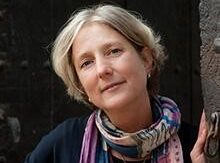Martine Vrijheid is a Research Professor with a research focus on environment and child health with a special interest in the effects of environmental chemical exposures, including a range of plastic-associated chemicals. She leads and has led numerous national and international projects on these topics. She coordinated the HELIX (FP7) project, spearheading a more holistic “exposome” approach to studying co-existing exposures and their joint effects on molecular omics responses and on child health, and she now leads its follow-up ATHLETE (H2020). She has been instrumental in the building of a network of birth cohorts in Europe through her coordination of the CHICOS (FP7) project, which developed an integrated strategy for birth cohort research in Europe and brought together over 70 cohort studies across Europe studying more than 500,000 mother-child pairs. The coordination of birth cohorts is being continued under the LifeCycle (H2020) project in which she leads a WP. She also currently leads tasks or WPs in the H2020-funded projects STOP (Science and Technology in childhood Obesity Policy), OBERON (an integrative strategy of testing systems for identification of EDs related to metabolic disorders), HBM4EU (European Human Biomonitoring Initiative), and EUCAN-Connect (a federated FAIR platform enabling large-scale analysis of high-value cohort data connecting Europe and Canada in personalized health). She has published more than 280 scientific articles, been cited more than 20,000 times, and has an H-index of 67 (Scopus).
